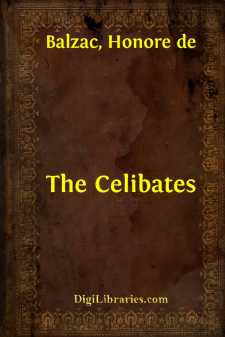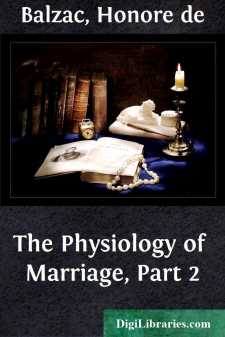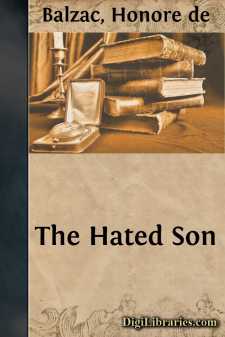Categories
- Antiques & Collectibles 13
- Architecture 36
- Art 48
- Bibles 22
- Biography & Autobiography 813
- Body, Mind & Spirit 142
- Business & Economics 28
- Children's Books 14
- Children's Fiction 11
- Computers 4
- Cooking 94
- Crafts & Hobbies 4
- Drama 346
- Education 46
- Family & Relationships 57
- Fiction 11829
- Games 19
- Gardening 17
- Health & Fitness 34
- History 1377
- House & Home 1
- Humor 147
- Juvenile Fiction 1873
- Juvenile Nonfiction 202
- Language Arts & Disciplines 88
- Law 16
- Literary Collections 686
- Literary Criticism 179
- Mathematics 13
- Medical 41
- Music 40
- Nature 179
- Non-Classifiable 1768
- Performing Arts 7
- Periodicals 1453
- Philosophy 64
- Photography 2
- Poetry 896
- Political Science 203
- Psychology 42
- Reference 154
- Religion 513
- Science 126
- Self-Help 84
- Social Science 81
- Sports & Recreation 34
- Study Aids 3
- Technology & Engineering 59
- Transportation 23
- Travel 463
- True Crime 29
The Celibates
by: Honore de Balzac
Description:
Excerpt
Les Celibataires, the longest number of the original Comedie Humaine under a single title, next to Illusions perdues, is not, like that book, connected by any unity of story. Indeed, the general bond of union is pretty weak; and though it is quite true that bachelors and old maids are the heroes and heroines of all three, it would be rather hard to establish any other bond of connection, and it is rather unlikely that any one unprompted would fix on this as a sufficient ground of partnership.
Two at least of the component parts, however, are of very high excellence. I do not myself think that Pierrette, which opens the series, is quite the equal of its companions. Written, as it was, for Countess Anna de Hanska, Balzac's step-daughter of the future, while she was still very young, it partakes necessarily of the rather elaborate artificiality of all attempts to suit the young person, of French attempts in particular, and it may perhaps be said of Balzac's attempts most of all. It belongs, in a way, to the Arcis series—the series which also includes the fine Tenebreuse Affaire and the unfinished Depute d'Arcis—but is not very closely connected therewith. The picture of the actual Celibataires, the brother and sister Rogron, with which it opens, is one of Balzac's best styles, and is executed with all his usual mastery both of the minute and of the at least partially repulsive, showing also that strange knowledge of the bourgeois de Paris which, somehow or other, he seems to have attained by dint of unknown foregatherings in his ten years of apprenticeship. But when we come to Pierrette herself, the story is, I think, rather less satisfying. Her persecutions and her end, and the devotion of the faithful Brigaut and the rest, are pathetic no doubt, but tend (I hope it is not heartless to say it) just a very little towards sensiblerie. The fact is that the thing is not quite in Balzac's line.
Le Cure de Tours, is certainly on a higher level, and has attracted the most magnificent eulogies from some of the novelist's admirers. I think both Mr. Henry James and Mr. Wedmore have singled out this little piece for detailed and elaborate praise, and there is no doubt that it is a happy example of a kind in which the author excelled. The opening, with its evident but not obtruded remembrance of the old and well-founded superstition—derived from the universal belief in some form of Nemesis—that an extraordinary sense of happiness, good luck, or anything of the kind, is a precursor of misfortune, and calls for some instant act of sacrifice or humiliation, is very striking; and the working out of the vengeance of the goddess by the very ungoddess-like though feminine hand of Mademoiselle Gamard has much that is commendable. Nothing in its well exampled kind is better touched off than the Listomere coterie, from the shrewdness of Monsieur de Bourbonne to the selfishness of Madame de Listomere. I do not know that the old maid herself—cat, and far worst than cat as she is—is at all exaggerated, and the sketch of the coveted appartement and its ill-fated mobilier is about as good as it can be....












